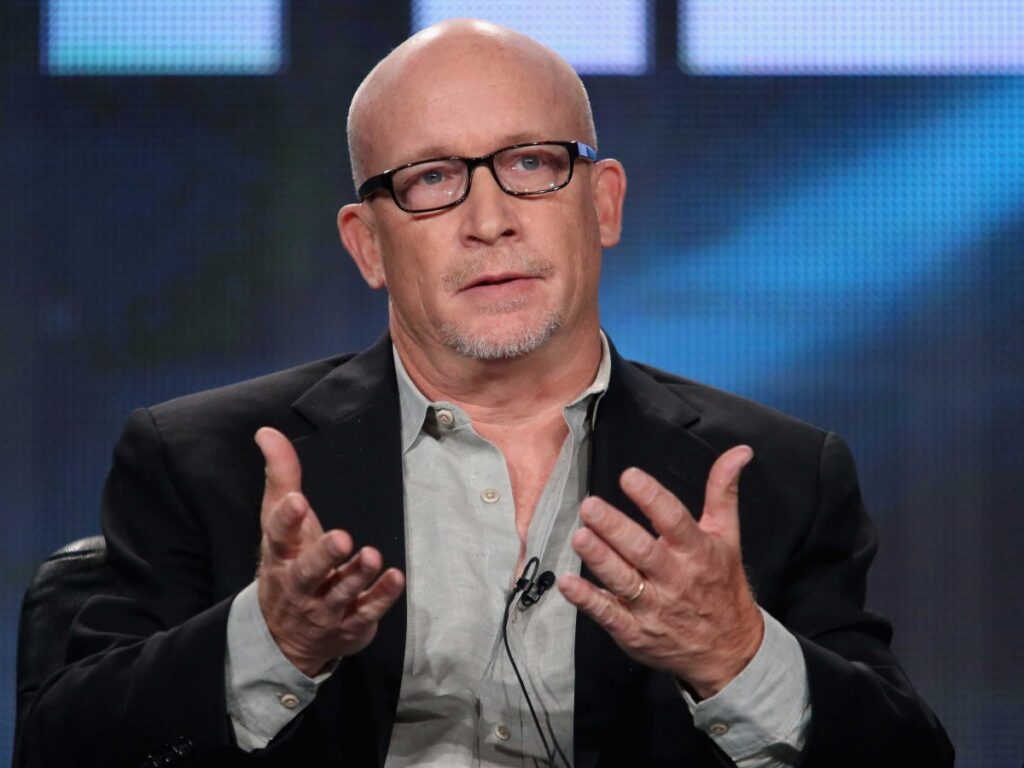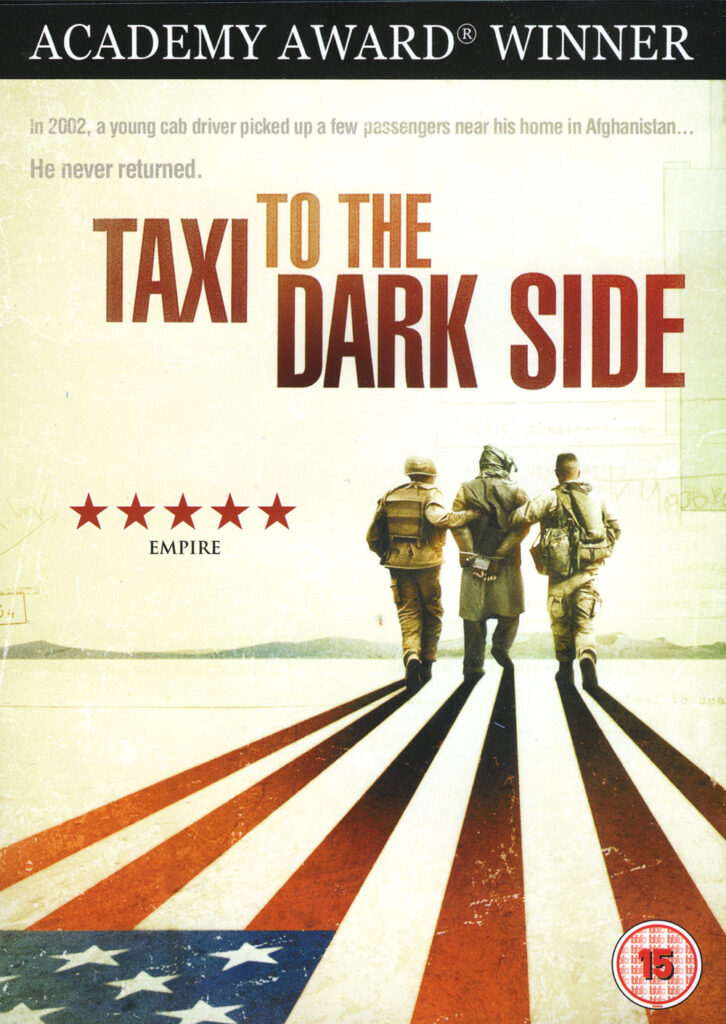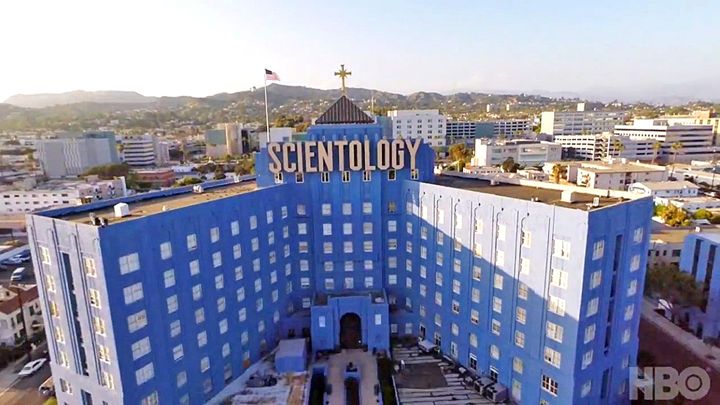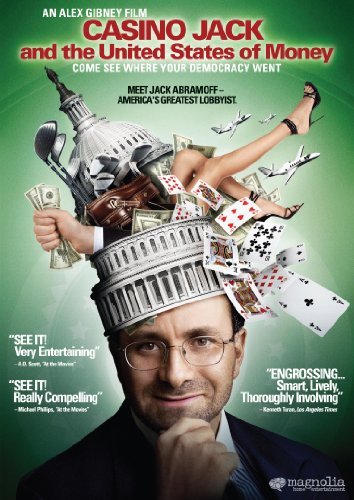
On the short list of current documentary filmmakers that can create a world of buzz with a new film, Alex Gibney is near the top. Born in New York City in 1953, Gibney went to film school after getting his bachelor’s degree from Yale University. The son of a journalist and stepson of a Reverend, his films often show great concern for finding the inherent truths of their subjects, while also possessing a moral compass that orients Gibney’s relationship to both the subject and the audience. The following are nine documentaries from Gibney’s filmography that illustrate the work he’s done for the form.
1. Enron: The Smartest Guys in the Room
Based on the 2003 best-seller of the same name, Enron: The Smartest Guys in the Room depicts and analyzes the Enron Corporation’s headline-making collapse due to massive corruption at the highest levels and the epic scandal that followed. Gibney’s film, released in 2005, includes interviews with Enron executives and other employees, as well as stock analysts and reporters, including the book’s authors, Bethany McLean and peter Elkind. Released in 2005, Enron was nominated for an Academy Award and won the Independent Spirit Award for Best Documentary in 2006.
2. Taxi to the Dark Side
Gibney didn’t win the Oscar for Enron, but he did the following year for Taxi to the Dark Side, which documents the horrific story of an Afghan taxi driver tortured and beaten to death by American soldiers while in prison. The film broadens its subject to the American policy on torture and enhanced interrogation and, by interviewing political and military experts on both sides of the issue, examines the ethics of torture as well as its effects on pop culture and its relation to the Geneva Convention.

3. Gonzo: The Life and Work of Dr. Hunter S. Thompson
Released in 2008, Gonzo tells the story of groundbreaking journalist/author Hunter S. Thompson, using interviews with friends and family to add insight into the enigmatic writer’s life. The documentary was nominated for the Grand Jury Prize at Sundance and the WGA’s Best Documentary Screenplay award, and is one of the few documentaries with a Grammy nomination, for its album notes co-written by Johnny Depp and Douglas Brinkley.
4. Freakonomics
The Freakonomics movie was four short documentaries packaged together, all based on stories depicted in the best-selling book of the same name by Steven D. Levitt and Stephen J. Dubner. Each documentary had a different director, including Morgan Spurlock, Eugene Jarecki and Rachel Grady. Gibney directed the second segment, “Pure Corruption,” which concerned match fixing in Sumo wrestling, a scandalous yet prevalent feature of the Japanese sport. Freakonomics premiered at the Tribeca Film Festival in 2010.
5. Casino Jack and the United States of Money
Released in 2010, Casino Jack tells the story of Jack Abramoff, the D.C. lobbyist who went to prison for orchestrating a massive bribing scandal involving him and several lobbyists, politicians and congressional staffers, including a Congressman and two White House officials. While focusing on Abramoff, a conman and schemer, Gibney takes a broader look at the corruption embedded in the nation’s capital and its inner workings.
6. Client 9: The Rise and Fall of Eliot Spitzer
At first glance, Client 9 seems to be another of Gibney’s intensive looks at political corruption at the highest levels. While that is certainly an important component of the film’s DNA, Client 9 is a more personal look at one individual, former Governor of New York Eliot Spitzer, whose meteoric rise and White House aspirations collapsed under his epic prostitution scandal. Client 9 premiered in Spitzer’s home state at the Tribeca Film Festival in 2010.
7. We Steal Secrets: The Story of WikiLeaks
Gibney again tackles the darkest corners of the current political climate, but rather than taking a broad view or a specific look at an individual, he takes focus on an organization—WikiLeaks. The documentary covers the history of WikiLeaks and the context that led to its creation, including a 1989 hacking of NASA and a timeline of WikiLeaks’ major whistleblowing efforts, culminating in Chelsea Manning’s leak of classified war footage and documents. A story about WikiLeaks and a story about its founder, Julian Assange, go hand-in-hand, but Gibney interviews several people, including Manning, and uses previous interview footage of Assange himself.

8. Finding Fela
Gibney narrows his focus again to a single individual for Finding Fela, offering an intimate look into the fascinating life and career of musician Fela Kuti. The documentary premiered at the Sundance Film Festival in early 2014.
9. Going Clear: Scientology and the Prison of Belief
Currently airing on HBO, which produced the film, Alex Gibney’s Going Clear is adapted from Lawrence Wright’s book of the same name. Once again Gibney tackles a powerful institution and the controversy that surrounds it—this time the Church of Scientology. Gibney uses provocative footage of Scientology conventions and meetings, and interviews prominent ex-Scientologists, many either famous or former high-ranking members of the group. Gibney also includes footage from one of Scientology founder L. Ron Hubbard’s rare interviews. Before airing on cable, Going Clear premiered at the 2015 Sundance Film Festival, continuing Gibney’s streak of event-filmmaking.

Interested in telling stories of your own? Check out our documentary school programs today!

